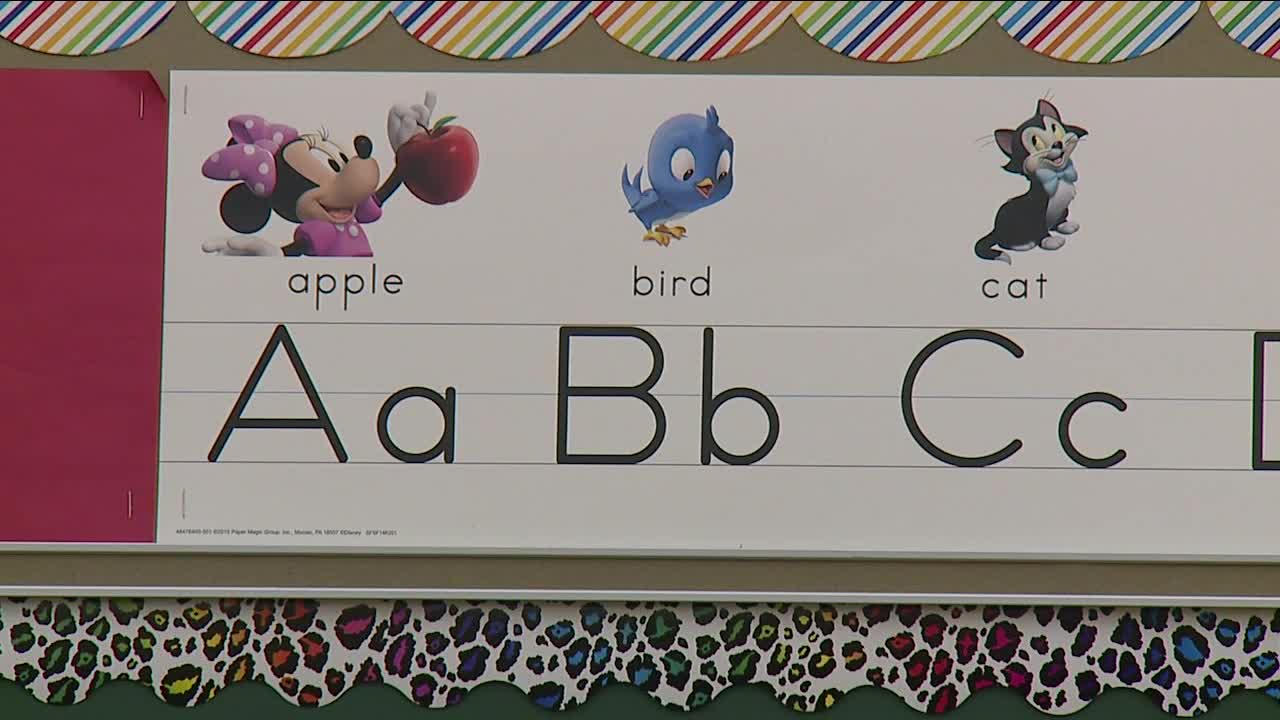CLEVELAND — For the third time in four years, voters in Cuyahoga County will decide upon a tax levy to support the Department of Health and Human Services. This time around, however, Issue 33 will bring a modest tax increase in order to help maintain and develop new programs as well as maintain the funding for existing ones, including the county’s expanded pre-kindergarten program.
Issue 33 will replace an existing 3.9-mill levy with a 4.7-mill levy, which equates to about $41 more in taxes a year for the owner of a $100,000 home. County leaders project the tax increase will generate an additional $35 million a year, which would stack with the $244 million generated by the two existing HHS levies.
Roughly $9 million of the new revenue generated would fund new programs. County leaders have previously stated the money is sorely needed in order to offset continued inflation, the reduction in grants and federal aid.
The revenue would be used to implement a kinship care program, which allows relatives of kids in county custody to receive funds in exchange for caring for the child. Funding for mental health crisis and supportive services would also be restored to levels prior to state cuts.
One of the main programs being touted by proponents of the tax increase is the county’s universal pre-k program, which services more than 4,500 children each year. Proponents tout the program’s demonstrated success, pointing to the substantial number of children who are significantly more prepared for kindergarten.
Sara Frye, a mother of a 7-year-old who has graduated the program as well as a 4-year-old who is currently enrolled in the program, said universal pre-k worked wonders.
“Maybe he would have done very well without pre-school. We’ll never know. I do know that he is reading and doing math three grade levels where he is supposed to be,” Frye said. “They are learning steps to independence. They are on their own in a small way and feeling a sense of agency and of pride in being able to do things themselves.”
Rebekah Dorman, the executive director of Invest in Children, said the universal pre-k program helps to level the playing field for children coming from low-income or economically distressed environments.
“It’s really important to give kids the best start in life and the best start in school and we’re demonstrating that UPK does give those kids a leg up,” Dorman said. “We’re known as a leader in this state because we have this very generous community of taxpayers that have supported our HHS levy throughout the years. I think our community recognizes value when they see it.”
Greater Cleveland Partnership, the area’s chamber of commerce, was initially skeptical of the tax increase, continuing its resolution passed in 2019 that aimed to clamp down on what its members believe is an unsustainable pattern of tax increases, said president Joe Roman.
In late January, GCP announced that it would endorse the HHS levy after county leaders agreed to develop and publish HHS levy savings that are achieved. GCP and county leaders have formed a task force to explore possible local tax reform that would allow the region to be more competitive in its tax climate.
“What we found unfortunately is that we are not competitive. We have to start reining in the taxes that all of us pay and getting more efficient with those taxes everywhere we have a chance to do so,” Roman said. “We initially said to the county we want to take a stronger look at this. This is not just an automatic, ‘were going to support this levy.’ Candidly, if we’re going to avoid future tax increases, we have to spend the money we have better. We’ve agreed jointly to work together on trying to achieve those objectives.”
GCP officials previously said the intention behind the increased scrutiny is not to single out any one taxing authority but rather prevent an increased trajectory of tax increases.
“The good news about our community is we are very generous. We respond to needs but if we continue to respond in a way that raises our taxes every single time a levy expires, we will become a town and a community that people vote with their feet about and choose to leave,” Roman said. “I give the county credit for working with us. They want to work with us because they know too that tax fatigue is looming.”
Tom Gill, the president of Urban Community School, which houses 160 kids under the age of 6, said the tax increase is vitally important to help ensure future generations of Clevelanders and Cuyahoga County residents get off to the best start possible.
“We have been completely convinced by both the internal experience and the external data of how important early childhood is,” Gill said. “The challenge is you have to operate it. It’s not inexpensive. There is also nothing more valuable than these dollars being invested at such a young age.”
Amid concerns about the coronavirus, county and state election officials have required some polling places at senior living facilities to be moved to new locations. County Executive Armond Budish and Cuyahoga County Councilman Dan Brady have urged voters to ensure that they are going to the proper voting center.
“We fully understand the State’s desire to relocate polling locations that were to be based in residential senior citizen facilities. It is a prudent and necessary precaution, and the health and safety of our community must come first,” Budish said. “At the same time, this may create voting obstacles for tens of thousands of County residents who use those polling locations. Now more than ever, we need Cuyahoga County voters to cast their ballots for Issue 33, the health and human services levy. This is a reminder of why we can’t afford to weaken our county’s health and human services system.”




